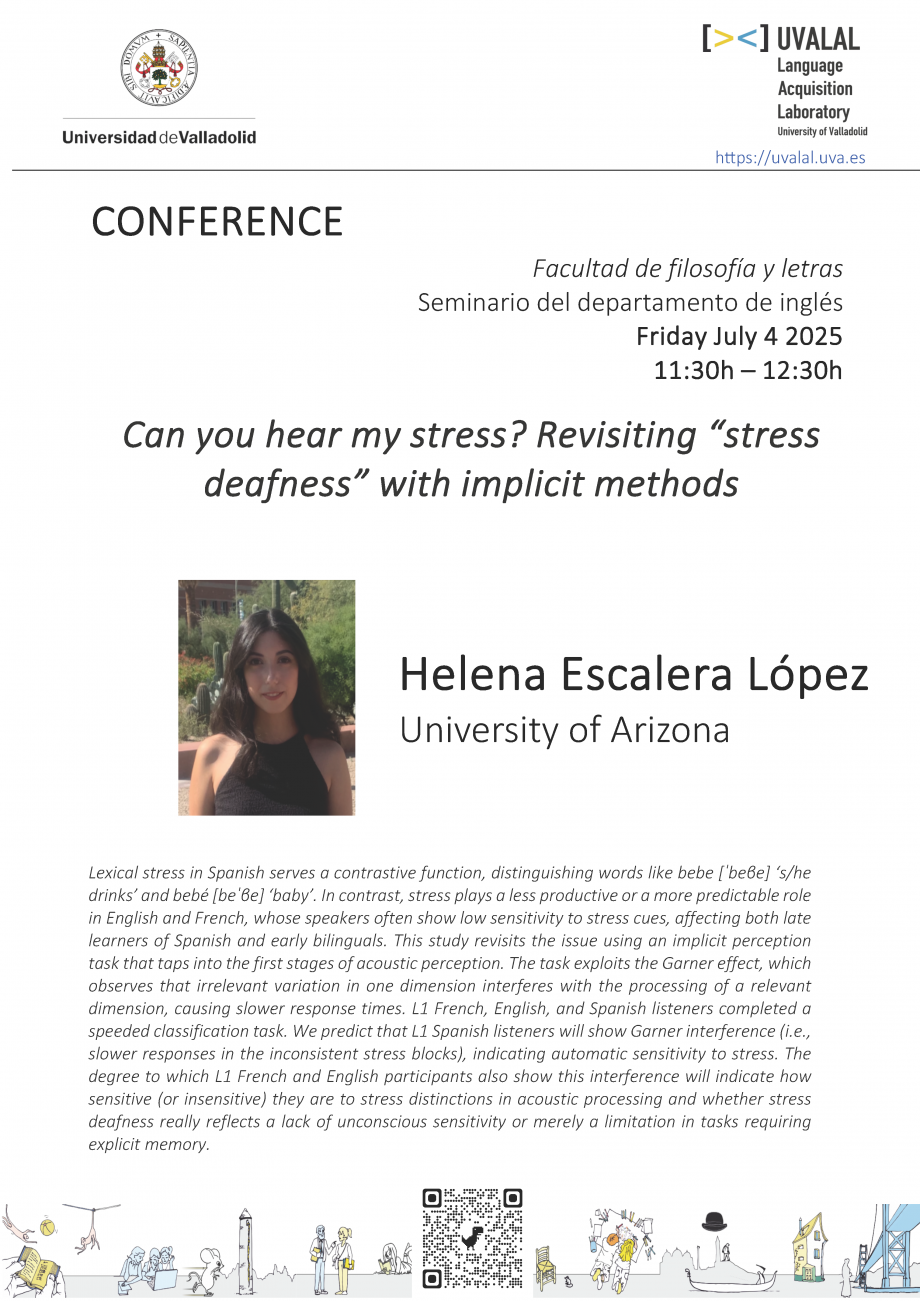CONFERENCIA: Can you hear my stress? Revisiting “stress deafness” with implicit methods
-
Inicio: Viernes, 04 julio 11:30
Fin: Viernes, 04 julio 12:30 - Facultad de Filosofía y Letras . Universidad de Valladolid (FyL-UVa), Plaza Campus Universitario, Valladolid, España

Facultad de Filosofía y Letras
Seminario del departamento de inglés
Viernes 4 de julio, de 11:30h a 12:30hHelena Escalera López. University of Arizona
Lexical stress in Spanish serves a contrastive function, distinguishing words like bebe [ˈbeβe] ‘s/he drinks’ and bebé [beˈβe] ‘baby’. In contrast, stress plays a less productive or a more predictable role in English and French, whose speakers often show low sensitivity to stress cues, affecting both late learners of Spanish and early bilinguals. This study revisits the issue using an implicit perception task that taps into the first stages of acoustic perception. The task exploits the Garner effect, which observes that irrelevant variation in one dimension interferes with the processing of a relevant dimension, causing slower response times. L1 French, English, and Spanish listeners completed a speeded classification task. We predict that L1 Spanish listeners will show Garner interference (i.e., slower responses in the inconsistent stress blocks), indicating automatic sensitivity to stress. The degree to which L1 French and English participants also show this interference will indicate how sensitive (or insensitive) they are to stress distinctions in acoustic processing and whether stress deafness really reflects a lack of unconscious sensitivity or merely a limitation in tasks requiring explicit memory.
-
